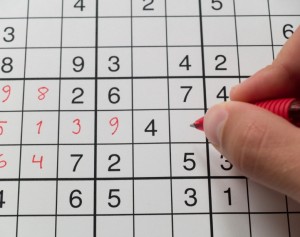INSTRUCTIONS TO FREELANCER SELLING MIND AND SOUL FOR PEANUTS: Please circle the appropriate options contained within brackets and provide the appropriate language where specified. Then return this form to Slate Book Review editor Dan Kois. Do not attempt to stray from the formula. While we appreciate your natural writing voice, there’s little that you can contribute to Slate in this brave new world of superficial outrage.
The boilerplate has been carefully perfected to make many readers needlessly indignant, to get the beloved author John Green to react on Twitter and/or get huffy in a VlogBrothers YouTube video, and to otherwise send clicks to our flailing outlet, which has not specialized in useful criticism for quite some time. Ah, but those days are over. As we discussed over the phone, YA seems to be the hot thing right now. It is important for us to impeach its character in the strongest and least subtle terms. We are Slate. These rubes cannot ignore us.
We are counting on angry Tumblr posts and glum Vimeo confessionals and somber Facebook posts and 140 character missives, which we will transform into traffic through the purest methods of outrage alchemy. Please note that you have waived your right to pursue damages against Slate for any nasty insults or death threats hurled at you, but we urge you to retweet it all for maximum exposure. As we both agreed, your credibility as a writer does not matter. Slate, in turn, will incorporate propaganda methods through social media, using the modifiers “thoughtful” and “provocative” in relation to your piece. We don’t have a lot in our budget, but an unpaid Slate intern will arrive at your home to salute your ignoble work with complimentary mojitos if you play ball with us. (Well, not really. But we like to keep hope alive within this soulless operation. We assure you that the joke’s on us!)
So let’s get started. Here are the first four paragraphs of the Slate piece. Please fill out and return by 5:00 PM. We will contact you tomorrow with the next four paragraphs after we have fed your choices into our outrage algorithm.
BODY
As [insert recent hot YA title] [enters into theaters / hits the bestseller list / is discussed by millions on social media], it can be hard to remember that [once upon a time / in a galaxy far, far away / before the Internet], an adult might have [felt embarrassed / consulted a therapist / thrown herself out of a window] to be caught reading the novel that inspired it. Not because [it is bad / it is for kids / the cover contains a strobing light that might harm epileptics / there are no trigger warnings for the dark content contained inside] [OPTIONAL REASSURANCE BREAK WITH DASHES CAN BE PLACED HERE: CONSULT SLATE EDITOR FOR OPTIONS] but because [it was written for teenagers / a handful of conservatives have rightfully protested it / it is akin to eating cultural vegetables / it is less than 300 pages].
[The once-unseemly notion / The commonly critical consensus / The overly stressed sentiment] that [it’s cool / it’s acceptable / it’s a gateway to other titles] is now [INSERT JEZEBEL LINK TO UNITE #YESALLWOMEN CROWD INTO COLLECTED INTERNET OUTRAGE OVER PIECE]. Today, [teenagers write Bella and Edward fan fiction / grown-ups brandish their copies of teen novels / baristas hope to be the next Kendall or Kylie Jenner] with pride. There are [INSERT FLAVORWIRE OR BOOKRIOT LINK HERE TO FOMENT OUTRAGE FROM READERS] that [adults should read / that YA is literature too / that YA does not cause hair loss / that any schlub with a tablet can write YA]. But [reading YA / writing YA / balancing Maureen Johnson books on the top of your head] doesn’t mean much these days. A [INSERT STATISTICS-LADEN PUBLISHERS WEEKLY ARTICLE TO SUGGEST AUTHORITY] by [a market research firm / an authoritative blogger / a minimum wage slave standing in a mall with a clipboard / Malcolm Gladwell] found that [INSERT STAT]. [Note to Freelancer: Our research team hasn’t established a house style on this point yet, but be sure to write a sentence or two on what the definition of “young adult” is supposed to mean. Work in “new adult” if you can.]
[CYCLE BACK TO STATISTICS-LADEN PW ARTICLE FOR TRANSITION TO NEXT PARA], which might be why I [wasn’t surprised / wasn’t shocked / couldn’t work myself up into a lather / didn’t shower today] over this news. I’m surrounded by [YA-loving adults / YA readers / people who are YA-curious], [online / in real life / both online and in real life]. Today’s YA, we are constantly reminded, is [worldly / adult-worthy / better than popping bubble wrap]. That kept me [closeted / bashful / terrified] about expressing my [morally superior / fuddy-duddy / rash / carefully considered] opinion: Adults should [feel embarrassed / throw themselves off bridges / form twelve-step support groups] about [reading / writing] literature for children.
Let’s set aside [the scholarly efforts that have shown YA to be a viable genre / the transparently trashy stuff], which [only academic quacks subscribe to / no one defends as serious literature]. I’m talking about [the genre the publishing industry / the shit that the Smart Bitches chick is always talking up / anything that Jennifer Weiner likes], often called [“new adult” / “realistic fiction” / “kid lit” / crack cocaine]. Those are the books, like The Fault of Our Stars [Note to Freelancer: It is important that you mention John Green’s seminal novel over and over. This is essential to fomenting Internet outrage. Failure to do so will be considered breach of contract.], that [are about real teens doing real things / suggest importance to young readers by quoting Shakespeare in the title], and that rise and fall not only on [the strength of their stories / the truth of their convictions / the telegenic quality of the author] but, theoretically, on [the quality of their writing / the loudness of their audience / the academic rigor of their defenders]. These are the books that could plausibly be said to [be replacing literary fiction / to be replacing movies / to be encouraging kids to engage in illicit activities] in the lies of their adult readers. And that’s a shame.
PAYMENT
Expect payment for this piece three months after its publication and after your reputation has taken a thorough beating.
This concludes Stage One of the editorial process.
Thank you for working with Slate!





